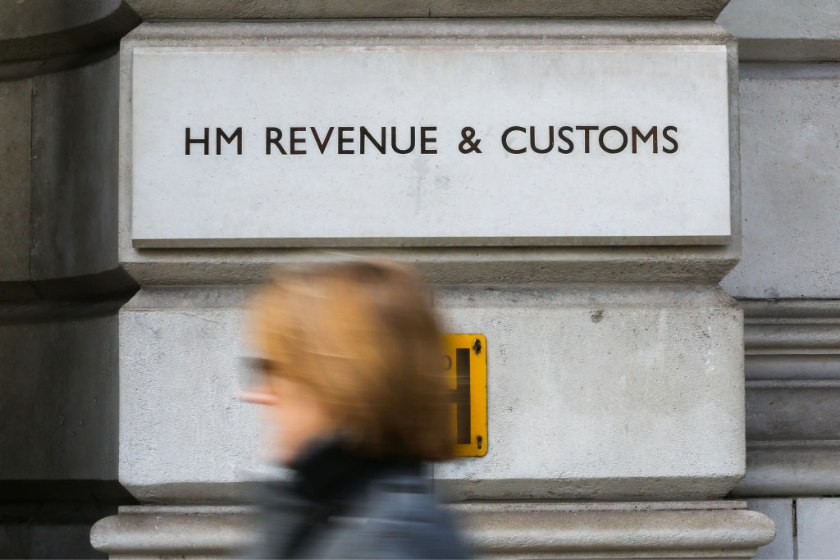HMRC umbrella company ‘checking tool’ looms for workers
Umbrella company consultation response and guidance due from HMRC, as more details come out on Tax Administration and...
READ MORE
A key Upper Tribunal decision has upheld the requirement for two businesswomen to pay capital gains tax on an additional £1.1 million they were never paid, highlighting the importance of clear and specific tax advice.

The United Kingdom Upper Tribunal last month rejected an appeal from former care home owners Michelle McEnroe and Miranda Newman that their tax liabilities should exclude a £1.1 million portion of the proceeds of the sale of their business. The £1.1 million repaid debts that were carried by the business when it sold for £8 million in 2013.
But the panel of Upper Tribunal judges agreed with the First-tier Tax Tribunal (FTT) that the appellants should pay tax on the total sale price, without a debt reduction.
Managing director and co-owner of Churchill Taxation Stephanie Churchill said the decision was “an important lesson to clients” about the importance of formal tax advice in conjunction with legal paperwork.
“Whilst the transaction may appear to be in good order to the vendor and the lawyers will ensure that legally the objectives are met, tax has its own rules and therefore may produce an unexpected result if tax advisers have not properly considered the circumstances,” she told Financial Accountant.
“Economic outcomes and tax outcomes are very often very different and this is why a tax person should always be involved to ensure the two do not deviate.”
McEnroe and Newman sold their equal shares in the care home Kingly Care Partnership to Active Assistance Finance Limited a decade ago for £8 million, subject to adjustments.
The women’s share sale and purchase agreement included provisions for a working capital adjustment and an earn-out, which would be conducted simultaneously.
When it transacted, Active Assistance Finance paid £8 million, including about £1.1 million that was immediately used to pay out a company loan with Allied Irish Bank.
The women each reported one half of the £6.9 million sale in their self-assessment tax returns.
However, HMRC opened an inquiry into their tax affairs, finding their tax liability extended to the total £8 million sale proceeds.
The women appealed, arguing that the agreement set out that they would never have received the full £8 million as the £1.1 million debt was paid directly from the buyer to the bank.
In 2021, they revised their argument, saying the share sale and purchase should be changed to reflect the parties’ intentions.
Their submissions, however, were dismissed by the FTT in 2022. Fast forward to October this year, and the Upper Tribunal confirmed the FTT decision that the share sale and purchase agreement should be interpreted as being set at the total price of £8 million.
Ms Churchill said the case demonstrated the impact of the terms of the contracts.
“It is very important to pay close attention to the legal documentation that is put in place during a transaction, particularly where they are responsible for the tax advice.” she said. “Many lawyers will make it clear that they are not able to give tax advice and therefore separate tax advice should always be sought.”
She advised tax accountants completing the capital gains tax calculation and submitting the self-assessment tax return should “familiarise themselves with the sale documentation and ensure that the terms as drafted reflect the desired tax treatment”.
“If an enquiry is made by HMRC into the calculation, the legal documentation will be the first thing requested. If a contract states £8 million and there is no further adjustment to this amount contained within the contract, HMRC will use the face value of the contract. Tax rules can sometimes give very strange outcomes and may appear illogical to the layperson, but they are the rules that will be applied.”
The Upper Tribunal rejected the women’s argument that when the SPA was properly understood, the buyer paid £6.9 million for the business shares and that they never actually received the full £8m.
Their counsel argued that the FTT findings were “inconsistent with the abbreviated financial statements of the Company” in the 2014 reporting period.
He said when the buyer paid the debt to the bank, through double-entry bookkeeping, it automatically gave rise to the debt of £1.1 million in the net current assets, and an adjustment in working capital.
The Upper Tribunal, however, disagreed: “Double entry bookkeeping is a system of recording transactions – transactions and liabilities cannot arise as a consequence of double entry bookkeeping,” the judges said.
“Although we are aware that there may be grounds for arguing that the Buyer might have a claim in restitution against the Company as a consequence of the Buyer voluntarily discharging the Company’s debt, this is a difficult area of law, and we find that it would be unreasonable to expect the FTT to make any findings that such a liability arises automatically in the absence of reasoned submissions and without being referred to the relevant authorities.”
Writing in Lexology, Taylor Wessing solicitor and Chartered Tax Adviser Liz Wilson said the decision demonstrated the importance of drafting the consideration clause in a sale and purchase agreement.
She said it should be clear in the definition of the price for the share, that it is to be reduced by the debt amount, with an additional mechanism to explain how the debt will be discharged.
“Without that clarity, the decision of both tribunals and HMRC is clear: if an agreement says the price is £X then £X is the basis for the capital gains tax computation, regardless of how much is in fact received by the sellers,” she said.
“The case is a useful reminder that the wording of the consideration clause matters, on the facts of this case, one might say it matters more than the economic reality,” she said.